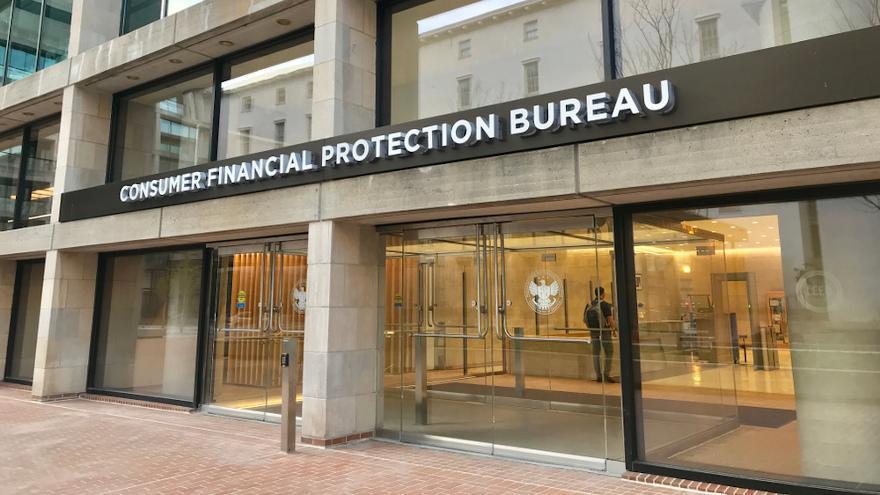CFPB ‘makes clear’ credit report usage under FCRA

By subscribing, you agree to receive communications from Auto Remarketing and our partners in accordance with our Privacy Policy. We may share your information with select partners and sponsors who may contact you about their products and services. You may unsubscribe at any time.
Last week, the Consumer Financial Protection Bureau (CFPB) turned its attention back to credit reports.
The bureau said it issued a legal interpretation to ensure that companies that use and share credit reports and background reports have a permissible purpose under the Fair Credit Reporting Act.
Officials said through a news release that the CFPB’s new advisory opinion “makes clear” that credit reporting companies and users of credit reports have specific obligations to protect the public’s data privacy. The advisory also reminds covered entities of potential criminal liability for certain misconduct.
“Americans are now subject to round-the-clock surveillance by large commercial firms seeking to monetize their personal data,” CFPB director Rohit Chopra said in the news release. “While Congress and regulators must do more to protect our privacy, the CFPB will be taking steps to use the Fair Credit Reporting Act to combat misuse and abuse of personal data on background screening and credit reports.”
The bureau recapped that Congress enacted the Fair Credit Reporting Act in 1970 to ensure companies “exercise their grave responsibilities with fairness, impartiality, and a respect for the consumer’s right to privacy.” The Fair Credit Reporting Act regulates companies that assemble dossiers on individual consumers, including credit reporting companies, tenant screeners and other data brokers.
Among other things, the CFPB explained the Fair Credit Reporting Act ensures fair and accurate reporting, and it requires users who buy these dossiers to have a legally permissible purpose. The regulator pointed out that this process ensures that companies cannot check an individual’s personal information, including their credit history, without a bona fide reason.
Subscribe to Auto Remarketing to stay informed and stay ahead.
By subscribing, you agree to receive communications from Auto Remarketing and our partners in accordance with our Privacy Policy. We may share your information with select partners and sponsors who may contact you about their products and services. You may unsubscribe at any time.
Some common permissible purposes include using consumer reports for credit, insurance, housing, or employment decisions. For example, a bank may request a credit report in order to determine the terms on which it will offer someone a line of credit.
The CFPB said its advisory opinion will help to hold responsible any company, or user of credit reports, that violates the permissible purpose provisions of the Fair Credit Reporting Act. Specifically, the advisory opinion “makes clear,” according to the agency that:
— Insufficient matching procedures can result in credit reporting companies providing reports to entities without a permissible purpose, which would violate consumers’ privacy rights: For example, when a credit reporting company uses name-only matching procedures, the items of information appearing on a credit report may not all correspond to a single individual. That means the user of a credit report could be provided a report about a person for whom the user does not have a permissible purpose.
— It is unlawful to provide credit reports of multiple people as “possible matches:” Credit reporting companies may not provide reports on multiple individuals where the requester only has a permissible purpose to obtain a report on one individual. They must have adequate procedures to find the right person, or else the result may be that they provide a report on at least one wrong person.
— Disclaimers about insufficient matching procedures do not cure permissible purpose violations: Disclaimers will not cure a failure to take reasonable steps to ensure the information contained in a credit report is only about the individual for whom the user has a permissible purpose.
— Users of credit reports must ensure that they do not violate a person’s privacy by obtaining a credit report when they lack a permissible purpose for doing so: The Fair Credit Reporting Act strictly prohibits anyone from using or obtaining credit reports without a permissible purpose.
The CFPB also mentioned its advisory opinion outlines some of the criminal liability provisions in the Fair Credit Reporting Act.
Officials said covered entities can face criminal liability for obtaining a background report on an individual under false pretenses or by providing a background report to an unauthorized individual.
For example, officials explained Section 620 of the Fair Credit Reporting Act imposes criminal liability on any officer or employee of a consumer reporting agency who knowingly and willfully provides information concerning an individual from the agency’s files to an unauthorized person.
Violators can face criminal penalties and imprisonment, according to the CFPB.
The CFPB will continue to take steps to ensure credit reporting companies and other relevant entities adhere to the Fair Credit Reporting Act and other consumer financial protection laws,” officials said, while noting that the entire advisory opinion can be viewed online via this website.


